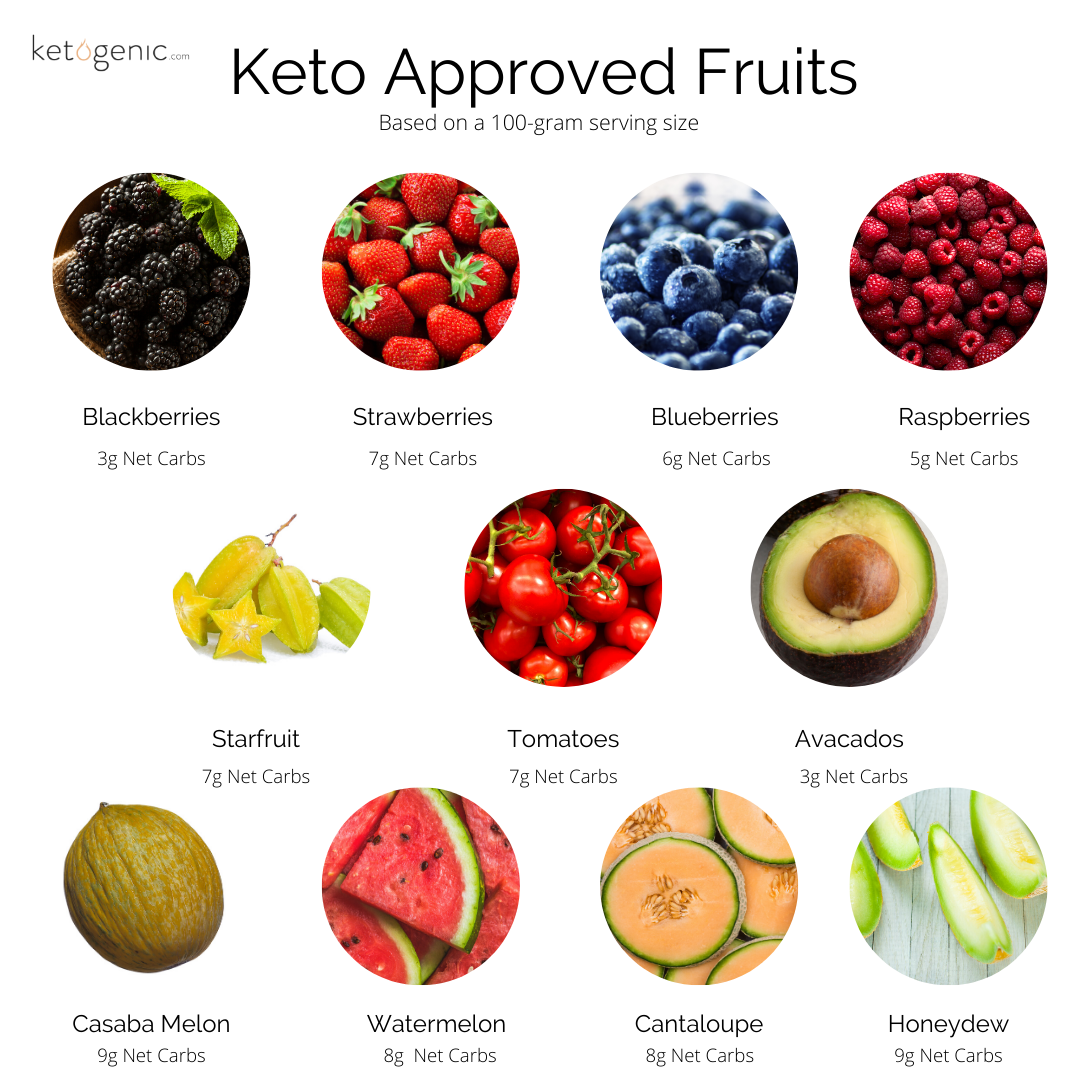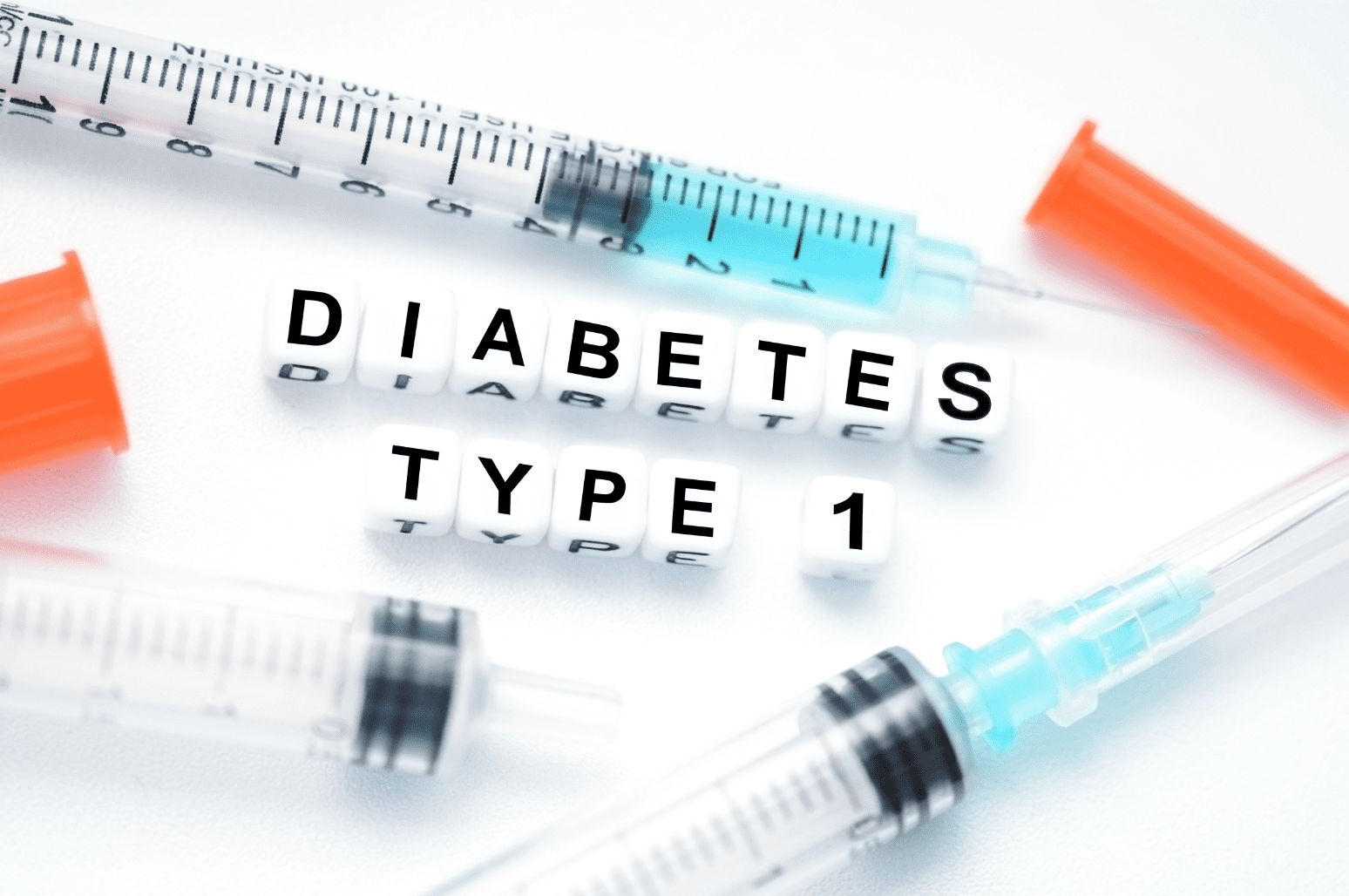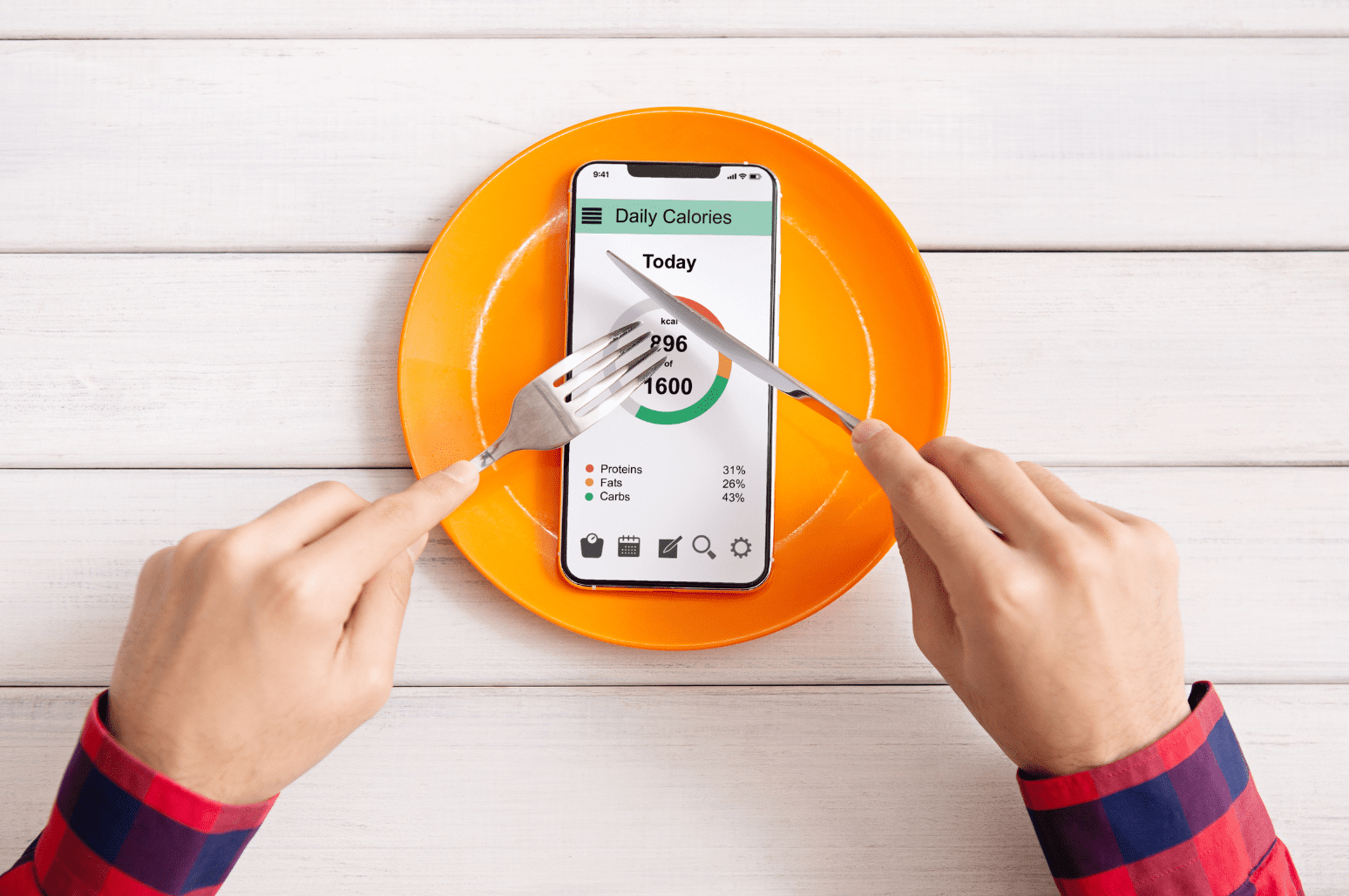Eight Low-Carb Fruits That Are Nutrient-Dense and Delicious!

Fruit is nature’s sweet treat. Going keto or low-carb doesn’t mean saying goodbye to all fruits. You’ll be pleased to hear you can choose from a number of juicy, tasty, colorful, and nutritious keto-friendly fruits. Some fruits are lower in carbs and can fit perfectly into a well-formulated ketogenic diet.
Keto-friendly fruits are also usually higher in fiber — a beneficial, indigestible type of carb that doesn’t count toward your total daily carb count. Let’s discuss eight of the most nutrient-dense low carb and keto-approved fruits and why you should eat them!

1. Strawberries
Ruby red strawberries are sweet, flavorful, high in fiber, and low in carbs. 1 cup of strawberries provides almost 3 grams of fiber and just over 10 grams of net carbs. Strawberries also give you micronutrients like manganese, folate, and vitamin C. Packed with antioxidants like anthocyanins, strawberries are an excellent fruity choice for the ketogenic diet [1] [2].
Check out these strawberrylicious recipes:
2. Lemons
A popular yellow citrus fruit, lemons are often used to flavor drinks, desserts, and dishes. Lemon is low in sugar, with around 6 grams of carbs and just less than 2 grams of dietary fiber in each fruit. Lemons are rich in a type of fiber called pectin that helps regulate blood sugar levels, slow the growth of cancer cells, fight inflammation, and more. These juicy little yellow fruits are also high in several other nutrients, such as potassium and vitamins B6 and C [3] [4].
Try a lemony keto recipe:
3. Tomatoes
Contrary to popular belief, tomatoes are botanically classified as a fruit, even though they’re commonly used as a vegetable in various dishes and recipes. Tomatoes are much lower in carbs than lots of other fruits, making them a great choice for your ketogenic diet. There are only 7 grams of carbs and just over 2 grams of fiber in one cup (180 grams) of raw tomatoes. Tomatoes also provide beneficial plant compounds like beta carotene and lycopene [5] [6].
Enjoy these tomatoey keto recipes:
4. Avocados
Yes, you read that right! Avocados aren’t actually a vegetable, but they are one of the tastiest low carb fruits!
Whether you’re interested in avocado keto toast or guacamole, the humble avocado is a hit among keto dieters! Botanically and biologically speaking, avocados are considered a fruit. Avocados give you plenty of heart-healthy fats, and they’re low in carbs with around 8.5 grams of carbs and almost 7 grams of fiber in a 3.5 ounce (100-gram) serving. Avocados also give you a range of nutrients, including folate, potassium, and vitamin K [7].
Enjoy an avocado-rich keto recipe:
- Eggs in a Basket
- Keto Avocado Salad with Cucumber
- Keto Greens Smoothie
5. Raspberries
Raspberries are a healthy berry that’s low in carbs and rich in nutrients. 1 cup of raspberries (123 grams) provides around 7 grams of net carbs. Raspberries also provide vitamin C and K, copper, and manganese. These juicy little berries are also high in antioxidants that can reduce your risk of inflammation and chronic disease [8] [9].
Try a sweet raspberry keto recipe:
- Raspberry Cheesecake
- Raspberry Turnovers
- Raspberry Coconut Tosca Cake
6. Star Fruit
Carambola or star fruit is a tropical fruit native to Southeast Asia. The star fruit is shaped like a star, hence its name. While it’s not as common as other fruits, it’s a popular choice for keto dieters due to its low carb content. 1 cup (108 grams) of star fruit contains only 7.3 grams of carbs and 3 grams of fiber. This unique, juicy fruit is packed with copper, potassium, vitamin C, and pantothenic acid [10].
7. Peaches
Peaches are a stone fruit renowned for their sweet, juicy flesh and fuzzy skin. You might be surprised to hear that peaches are actually relatively low in net carbs and suitable for most keto dieters in moderation. With 15.7 grams of carbs and 2.5 grams of fiber in 1 cup (154 grams), you can include peaches in your ketogenic diet, as long as you moderate your portion size and pair them with other low carb fruits.
Peaches also contain niacin, potassium, and vitamins A and C. One study of 1,393 people regularly consuming peaches with other fruits and veggies high in stilbene and flavonoids found improved cholesterol and triglyceride levels. Cholesterol and triglyceride levels are considered risk factors for heart disease [11] [12]. Try a keto peach tea bourbon!
8. Cantaloupe
Cantaloupe is a type of muskmelon related to other varieties of melon, such as honeydew and watermelon. One cup (156 grams) of cantaloupe has just 12.6 grams of carbs and 1.2 grams of fiber.
Depending on your daily carb allowance, you might want to go for a smaller portion size to fit cantaloupe into your keto diet.
Consuming cantaloupe also gives you folate, vitamin K, and potassium. It’s also a rich source of beta carotene — a type of plant pigment involved in eye health and immune function [13] [14].
Do You Enjoy Fruits on a Low Carb or Ketogenic Diet?
Comment below and let us know your favorite low carb fruits!
References
USDA Food Database. Strawberries. FoodData Central (usda.gov)
Olas, B. (2018). Berry phenolic antioxidants: Implications for human health? Frontiers in Pharmacology, 9, 78. DOI: 10.3389/fphar.2018.00078
USDA Food Database. Lemons, Raw. FoodData Central (usda.gov)
Minzanova, S. T., Mironov, V. F., Arkhipova, D. M., Khabibullina, A. V., Mironova, L. G., Zakirova, Y. M., & Milyukov, V. A. (2018). Biological activity and pharmacological application of pectic polysaccharides: A review. Polymers (Basel), 10(12), 1407. DOI: 10.3390/polym10121407
USDA Food Database. Tomatoes, Raw. FoodData Central (usda.gov)
USDA Food Database. Avocado, Raw. FoodData Central (usda.gov)
USDA Food Database. Raspberries, Raw. FoodData Central (usda.gov)
Burton-Freman, B. M., Sandhu, A. K., & Edirisinghe, I. (2016). Red raspberries and their bioactive polyphenols: Cardiometabolic and neuronal health links. Advances in Nutrition, 7(1), 44-65. DOI: 10.3945/an.115.009639
USDA Food Database. Carambola, Starfruit, Raw. FoodData Central (usda.gov)
USDA Food Database. Peach, Raw. FoodData Central (usda.gov)
Li, G., Zhu, Y., Zhang, Y., Lang, J., Chen, Y., & Ling, W. (2013). Estimated daily flavonoid and stilbene intake from fruits, vegetables, and nuts and associations with lipid profiles in Chinese adults. Journal Acad Nutr Diet, 113(6), 786-794. DOI: 10.1016/j.jand.2013.01.018
USDA Food Database. Cantaloupe. FoodData Central (usda.gov)
Grune, T., Lietz, G., Palou, A., Ross, A. C., Stahl, W., Tang, G., Thurnham, D., Yin, S., & Biesalski, H. K. (2010). β-Carotene is an important vitamin A source for humans. 140(12), 2268S-2285S. DOI: 10.3945/jn.109.119024









